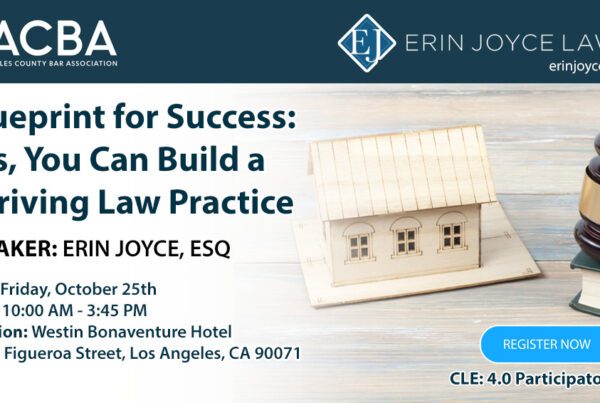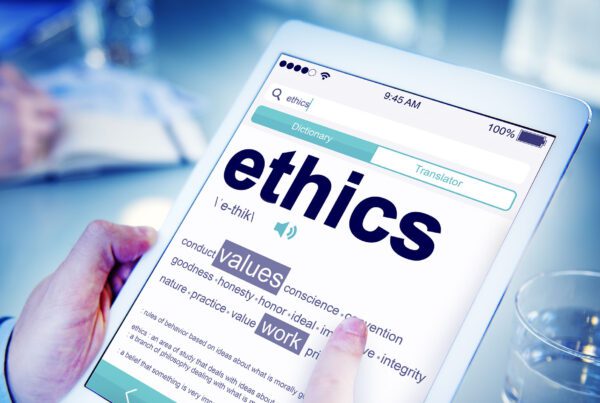In recent meetings, the State Bar’s paraprofessional program working group has suggested that paraprofessionals should be allowed to represent some clients in certain court matters, such as in juvenile dependency cases.
By Henrick Nilsson | Posted: 21 Apr 2021 Source: Daily Journal
In recent meetings, the State Bar’s paraprofessional program working group has suggested that paraprofessionals should be allowed to represent some clients in certain court matters, such as in juvenile dependency cases.
Opponents of a proposed paraprofessional program received support from the Los Angeles County Bar Association as the 16,000-member organization expressed concern over the direction a State Bar working group is taking.
In recent meetings, the paraprofessional program working group has suggested that paraprofessionals should be allowed to represent some clients in certain court matters, such as in juvenile dependency cases, to tackle California’s justice gap issues.
In a letter signed by LACBA President Tamila C. Jensen on Monday, the association agreed that California struggles with access to justice issues but raised concerns over the bar’s intentions.
“However, licensing non-attorney paraprofessional ‘specialists’ to provide in-court representation up to (and for everything short of) a jury trial is not the answer,” the letter stated. It was addressed to 1st District Court of Appeal Justice Ioana Petrou, who chairs the working group.
Jensen pointed to the rigorous training law students must undergo before providing legal services and argued that paraprofessionals lack the skills to advise clients properly.
On Monday, the bar working group met to discuss the draft rules of paraprofessional conduct, which build upon existing rules governing lawyer conduct. The group is scheduled to vote on the draft in June and it will go to the board in September before being circulated for public comment.
“Such rules revisions are not to be undertaken lightly,” the letter stated. “It took 25 years, and two rules revisions committees, to consider and adopt the current rules. It is precipitous and presumptively improper to have a working group consider and recommend sweeping changes to the rules in one meeting, with a single 45-day public comment period.”
According to the State Bar’s 2019 study on the justice gap, 85% of Californians received no or inadequate legal help to resolve civil disputes to which they were parties. The numbers were similar regardless if a person was above the federal poverty level or not, the bar said.
Proponents of the program have argued that similar initiatives in Ontario, Canada, have been successful. Since 2007, paralegals in Ontario have been allowed to practice without supervision by a lawyer and represent clients in court.
Arizona and Utah have started implementing similar programs. The efforts have been praised by some legal heavyweights including U.S. Supreme Court Justice Neil M. Gorsuch.
LACBA joins a group of nonprofit firms, including Bet Tzedek Legal Services and Public Counsel, which have previously opposed paraprofessionals in California. The firms have argued that such a program, allowing for unlicensed practitioners to represent litigants, would widen the justice gap, not close it.
Gina Amato Lough, supervising senior staff attorney at the Public Counsel Immigrants’ Rights Project, feared that the program could create a two-tiered system of justice where low-income individuals would receive substandard legal services.
“We believe that the State Bar can help meet the legal needs of California’s low-income residents, or close the ‘justice gap,’ by providing greater funding to existing nonprofit organizations and making it financially viable for law graduates to pursue a career in public interest law,” Lough said.
LACBA’s criticism comes as the Los Angeles County Superior Court announced a partnership with the association and the Beverly Hills Bar Association on Tuesday. Under a new program, volunteer attorneys will support self-represented litigants in divorce and paternity cases to finalize their paperwork to obtain a judgment, according to a news release.
According to Erin M. Joyce, a State Bar defense attorney in Los Angeles, there is no guarantee that paraprofessionals would be cheaper than a lawyer. A more efficient way to help people get access to justice is to better fund legal aid organizations and have lawyers record their pro bono hours, Joyce said.
“People will just necessarily start doing more pro bono because they’re going to have to report it, and no one wants to report zero hours,” Joyce said. She said lawyers could report donations or their pro bono work for legal aid organizations that qualify for IOLTA [Interest on Lawyers’ Trust Accounts] funds.
“You’re going to get more competent, legal lawyer services for the poor — the actual target of the access to justice issue,” Joyce said.
The State Bar did not provide a comment late Tuesday.
LAW IN THE NEWS

Building Your Own Thriving Law Practice

Ethics in the Digital Age

7 Key Concepts Of Trust Accounting
CONTACT ERIN JOYCE LAW
REPRESENTING CLIENTS THROUGHOUT ALL OF CALIFORNIA
When you get a letter from the State Bar, don’t go it alone! You need competent, experienced counsel to respond to the State Bar at every stage. Your license is at risk, so ensure you have the best representation from a former State Bar prosecutor before sending any response to an investigator or responding to formal charges leveled by the State Bar. You cannot make an informed decision without good advice. Call Erin now.











